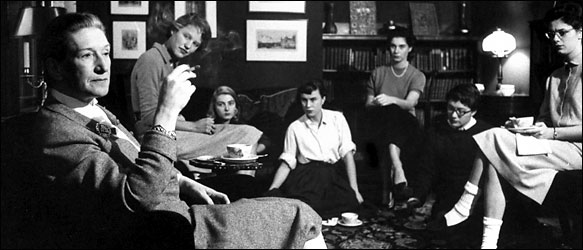"I want to know the root goes deep
on all that came before,
you could lay a soaker hose across
your whole life and know
there was something
under layers of packed summer earth
and dry blown grass
to moisten."
— Naomi Shihab Nye, from "Last August Hours Before the Year 2000"
-
-
"Women and couples in Klimt's erotic drawings swim in their own sexuality and at the same time swim away from themselves in line and contour. They unveil their sensuousness. Schiele's erotic figures don't unveil, they expose themselves, angular and strung-out, like guilty things caught. Certain poems unveil themselves with an almost ceremonial patterning, while others are spiky and nervous, as if words were rudely taken hostage to feeling. Plath's are like that, and many of Williams's early poems. Then there are poems, the precious few, that seem long-prepared, arranged just so, with a deliberate rhetoric, but nothing in them feels inauthentic or worked up for the sake of writing a poem. Then there are others, the proliferating many, prepped and constructed for quick and easy consumption. Of these we remember none of the words, nothing of the noise or music, only the scene, or anecdote, or 'voice.'"
— W. S. Di Piero, from "Semba!: A Notebook"
-
Elizabeth Bowen with students at Bryn Mawr, 1956. Photographed by Alfred Eisenstaedt
"If Bowen is not read now as widely as Henry James and Virginia Woolf, to whom she is often compared, it may be not because of her hyphen (since the specific concerns of the Anglo-Irish are not so widely understood these days), or the intricacy of her style. It may be, instead, that it is difficult to read a writer who bears down so hard on intimacy—among not only men and women, but men and women and their country, their houses, their pasts and themselves—and with an overwhelming, Irish sense of a bottomless, ancient pool of loss. She is as ruthless as James, as stylistically uncanny as Woolf, but with an ineradicable sense that history is made of other people's dirt. In photos, Bowen is impeccably ladylike, with a long upper-class face. But in her work, she's not reserved and her concerns do not seem quaint; she ventures unbearably close to ruins and wreckage, offering as consolation only an aesthetics of the haunted."
— Stacey D'Erasmo, from "Elizabeth Bowen: A Fan's Notes"

